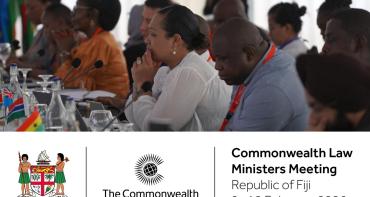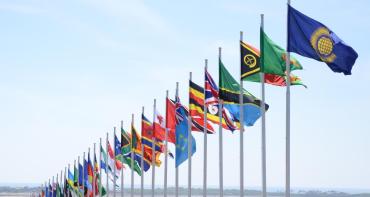Corruption is a problem no economy can choose to ignore. It is worth more than 5 per cent of global GDP (USD 2.6 trillion) and increases the cost of doing business by up to 10 per cent globally. At the same time, globalisation and advances in technology mean the laundered proceeds of crime can be quickly transformed and moved across borders and between jurisdictions.

Corruption is a problem no economy can choose to ignore. It is worth more than 5 per cent of global GDP (USD 2.6 trillion) and increases the cost of doing business by up to 10 per cent globally. At the same time, globalisation and advances in technology mean the laundered proceeds of crime can be quickly transformed and moved across borders and between jurisdictions.
“This presents new challenges to law enforcement officers tasked with tackling corruption,” says Shadrach Haruna, Legal Adviser at the Commonwealth Secretariat. “Corruption can no longer be addressed purely through the traditional criminal punitive measures of incarceration. Several approaches are needed, including depriving corruptors of the proceeds of their illicit gains through civil or non-conviction based forfeiture. This will not only disrupt the cycle that sustains and funds further criminal enterprise, but allows the stolen funds to be recovered and used to the benefit of the people.”
In Nigeria this week, the Commonwealth Secretariat is partnering with the Nigeria Presidential Advisory Committee Against Corruption, the National Judicial Institute of Nigeria and the United Nations Office on Drugs and Crime, to deliver a three-day seminar on the procedural aspects of asset recovery in the use of non-conviction based proceedings to senior judges of the Federal, States High Courts and Code of Conduct Tribunal.
This training builds on an earlier meeting on the management of recovered stolen assets convened by the Secretariat in Abuja in July last year. The July 2016 engagement led to the establishment of a recovered stolen assets register, a centralised assets management committee tasked with the management of recovered stolen assets and the implementation of an assessment management framework.
Twenty five senior judges from the federal and states judiciaries and ten prosecutors from the Federal Ministry of Justice and other Federal prosecutorial agencies are attending the seminar.
Mikhail Charles, Assistant Legal Officer said: “The beauty of the training is the robust exchanges of ideas and knowledge between the experts, using jurisprudence from other Commonwealth jurisdictions, such as Jamaica, The United Kingdom, Ghana, Saint Vincent, Tanzania, South Africa, and Seychelles, to explain and clarify legal issues under Nigerian legislation because of the commonality of the common law legal tradition.”



